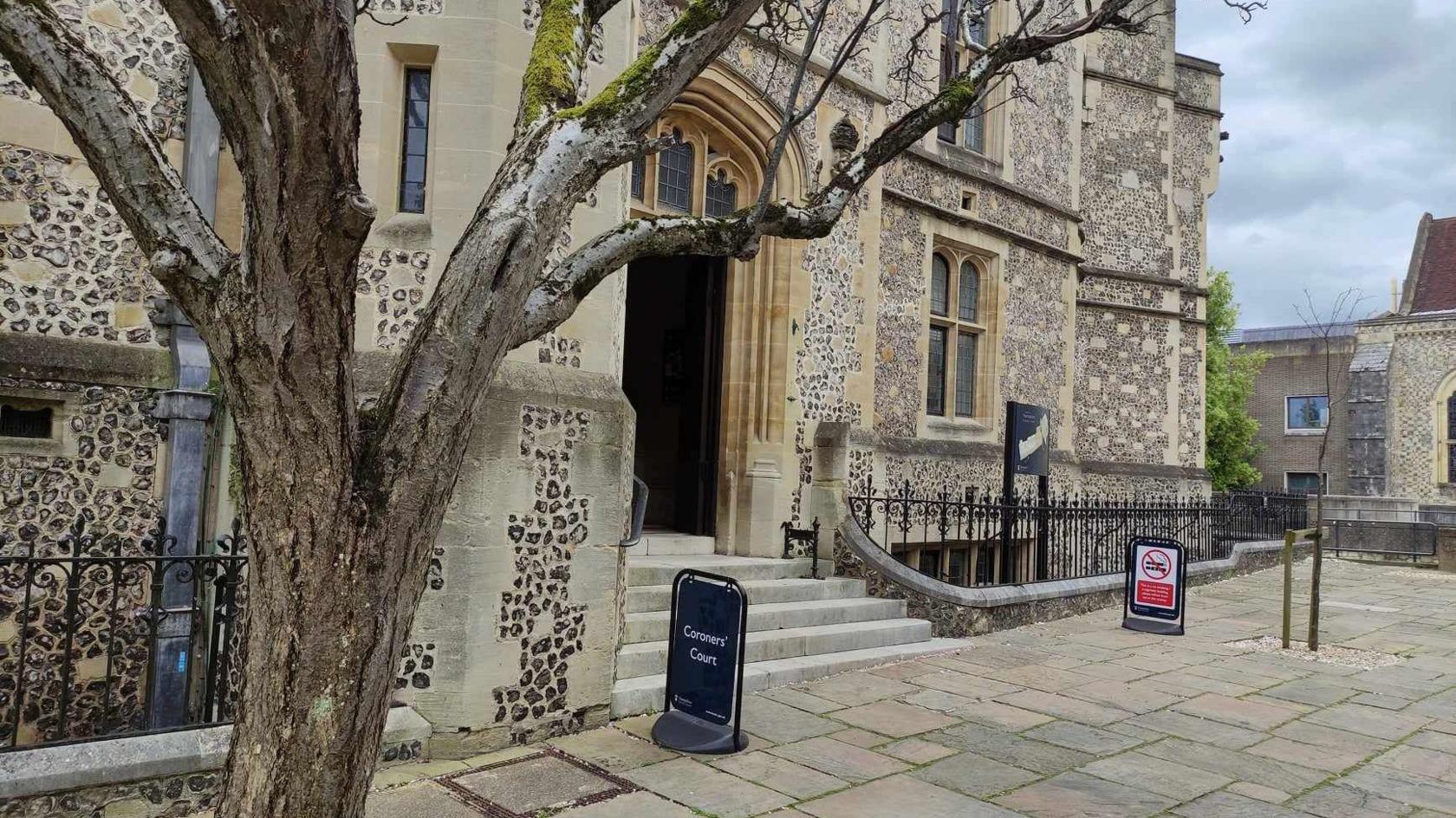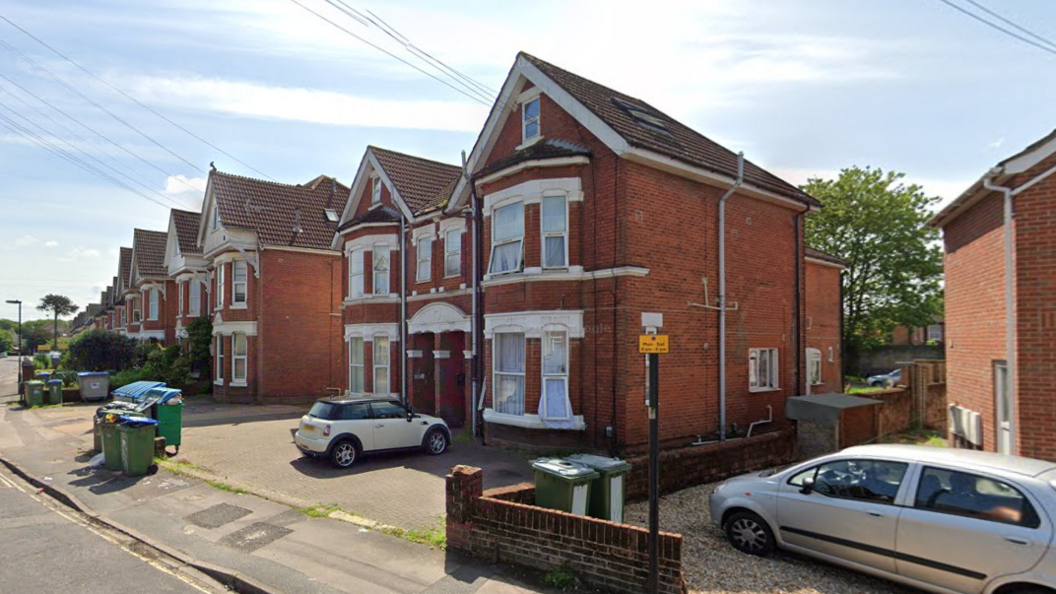Woman died after collapsing during arrest - inquest

Tracie Cooper fell to the floor after being handcuffed, the coroner's court heard
- Published
A woman collapsed and later died in hospital after police forced entry to her home and handcuffed her, an inquest has heard.
Tracie Cooper, 50, and her partner Nigel Cross were arrested on 18 April 2020 at their flat in Landguard Road, Southampton, the court was told.
She collapsed unconscious and was given oxygen by paramedics at the scene but a replacement cylinder was not turned on for six minutes, the inquest jury in Winchester heard.
Ms Cooper died in hospital two days later from the effects of bleeding on the brain, the court was told.

Police forced entry to Ms Cooper's home in Landguard Road
Paramedic Helen Landram said she arrived shortly after 21:30 BST to find the victim lying on the floor and not breathing effectively.
Ms Landram said she was told by police that Ms Cooper "became agitated [and] verbally aggressive" before collapsing, being helped to the floor by an officer.
She said she also learned the victim had been involved in an altercation on a previous day which may have involved weapons.
The paramedic said her assistant failed to turn on the second oxygen cylinder, causing Ms Cooper's blood oxygen saturation level to drop to 83%, below the ideal level of at least 95%.
Pathologist Dr Basil Purdue told the hearing the death was not due to undue force by the police or Ms Cooper hitting the ground.
He said: "Tracie's death was clearly the result of natural disease [and] precipitated by a sudden rise in blood pressure.
"The stress of arrest, an argument with the police, might well have precipitated a bursting of Tracie's aneurysm [a blood vessel defect]."
Under cross-examination by a police barrister, he said "exertion or excitement" could also have caused the fatal burst.
He said the oxygen cannister being switched off would not have made much difference to Ms Cooper's chance of survival as brain damage would have occurred rapidly.
The hearing, which is expected to last several days, continues.
Follow BBC South on Facebook, external, X (Twitter), external, or Instagram, external. Send your story ideas to south.newsonline@bbc.co.uk, external or via WhatsApp on 0808 100 2240, external.